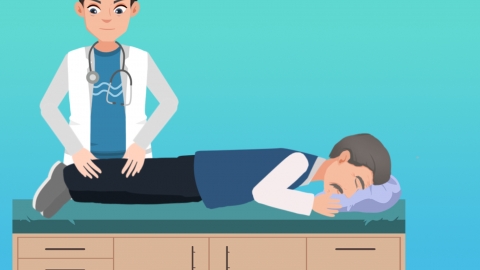What are the causes of falls in the elderly?
Falls in the elderly may result from declining balance, vision loss, osteoporosis, hypertension, Parkinson's disease, and other conditions. These risks can be reduced through balance training, vision improvement, medication, nutritional supplementation, and other measures. If falls occur frequently or are accompanied by dizziness or limb weakness, prompt medical attention is necessary.
1. Declining balance: With age, vestibular function and muscle strength decline in older adults, leading to reduced coordination. This makes them prone to falls during postural changes or when walking on slightly uneven surfaces. It is recommended to engage in mild daily exercises such as slow walking or tai chi, wear non-slip shoes, and keep home passageways tidy and free of obstacles.

2. Vision loss: Eye conditions such as age-related macular degeneration and cataracts cause blurred vision and narrowed visual fields, making it difficult to detect environmental hazards promptly, thus increasing fall risk. Regular eye examinations, wearing appropriate corrective lenses, improving home lighting, and avoiding glare or shadows are recommended.
3. Osteoporosis: Loss of bone minerals leads to decreased bone density and increased bone fragility. Fractures can occur even with minor trauma, and symptoms such as back pain and limb weakness may further increase fall risk. Under medical guidance, medications such as calcium carbonate D3 tablets, alendronate sodium enteric-coated tablets, and calcitriol soft capsules may be used to improve symptoms.
4. Hypertension: Reduced vascular elasticity and significant blood pressure fluctuations may lead to dizziness, headaches, and unsteadiness. Postural changes can cause insufficient cerebral blood supply, increasing fall risk. Under medical guidance, medications such as nifedipine sustained-release tablets, irbesartan tablets, and amlodipine benazepril tablets may be used to manage symptoms.
5. Parkinson’s disease: Insufficient dopamine production in the brain causes tremors, muscle rigidity, and slowed movements, impairing balance and coordination and increasing fall risk during daily activities. Under medical supervision, medications such as levodopa-carbidopa (benserazide) tablets, pramipexole sustained-release tablets, and amantadine tablets may be used to alleviate symptoms.
Daily care should include maintaining a clean and unobstructed living environment, providing elderly individuals with non-slip and comfortable clothing and footwear, ensuring regular sleep patterns and a balanced diet, and encouraging family members to spend time with them and monitor their health status.







